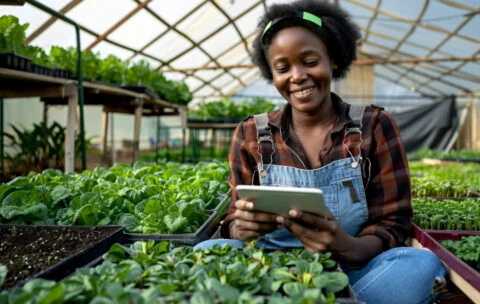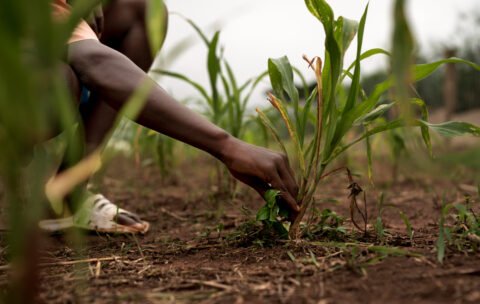Digital Marketing for Farmers
What you'll learn
Introduction to Digital Marketing
Understanding the basics of digital marketing.
Importance of digital marketing in modern agriculture.
Building Your Online Presence
Creating a professional website for your farm or agribusiness.
Using blogs and content marketing to share your farming story.
Social Media Marketing for Farmers
Choosing the right social platforms (e.g., Facebook, Instagram, LinkedIn).
Posting engaging content: photos, videos, and live updates.
Managing customer interactions through social media.
E-Commerce for Agricultural Products
Setting up an online store for direct-to-consumer sales.
Leveraging marketplaces like Amazon, Etsy, or local farm directories.
Tips for product photography and listing optimization.
Search Engine Optimization (SEO) Basics
Making your website and content easily discoverable online.
Using keywords relevant to agriculture and farming.
Email Marketing Campaigns
Building and growing an email subscriber list.
Creating effective newsletters to promote products and events.
Online Advertising and Promotions
Using Google Ads, Facebook Ads, and Instagram promotions.
Setting budgets and targeting the right audience.
Data Analytics for Farmers
Tracking your digital marketing performance with tools like Google Analytics.
Understanding customer behavior to improve your strategy.
Success Stories in Digital Marketing for Agriculture
Case studies of farmers who have successfully grown their businesses online.
Lessons learned and tips for long-term success.
Advanced Techniques in Organic Farming
What you'll learn
Introduction to Organic Farming Principles
Overview of organic farming and its global significance.
Understanding organic certification standards and compliance.
Advanced Soil Fertility Management
Techniques for improving soil health using green manures and biofertilizers.
Dynamic composting methods and microbial soil enhancement.
Integrated Organic Pest Management (IPM)
Identifying pests and beneficial insects in an organic farm.
Creating and applying organic pesticides and repellents.
Using biological controls like predators and parasitoids.
Crop Rotation and Intercropping Strategies
Planning rotations to prevent soil depletion and pest build-up.
Designing intercropping systems for mutual crop benefits.
Organic Weed Control
Non-chemical weed management techniques.
Tools and technologies for effective organic weed suppression.
Water Conservation and Management
Sustainable irrigation techniques tailored for organic farms.
Practices to improve water use efficiency.
Organic Certification and Market Access
Steps to obtain organic certification.
Strategies for marketing and selling organic produce.
Innovative Organic Farming Practices:
Exploring permaculture and agroforestry in organic systems.
Leveraging technology for farm monitoring and planning.
Mastering the Art of Crop Cultivation
What you'll learn
Introduction to Crop Cultivation
Soil Preparation and Health Management
Seed Selection and Planting
Choosing the right seeds for your climate and soil.
Proper planting techniques to ensure high germination rates.
Water and Irrigation Management
Efficient irrigation methods, including drip and sprinkler systems.
Techniques to conserve water and improve moisture retention.
Fertilization and Nutrient Management
Understanding essential nutrients for healthy crop growth.
How to use organic and inorganic fertilizers effectively.
Pest and Disease Control
Identifying common crop pests and diseases.
Integrated Pest Management (IPM) strategies to minimize crop loss.
Harvesting Techniques and Post-Harvest Management
Determining the right time to harvest for maximum quality.
Proper storage and transportation to prevent spoilage.
Modern Farming Innovations
Introduction to precision agriculture and its tools.
Using technology to monitor and improve crop yields.



